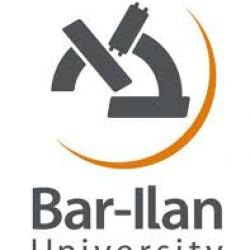
Have you ever thought that communication skills are as important as your knowledge? In the teaching learning process, communication becomes a very important factor to deliver the content and managing situations that could lead in to a conflict. HaLev: The center for simulation in Education at Bar llan University, located at Ramat Gan in the Tel Aviv district of Israel, has over 300 simulation scenarios, customized 16+ different target audiences. It was a wonderful experience to visit the center on Dec 2, 2018.
Simulations are instructional scenarios where the learner is placed in a scenario defined by the teacher. It is a form of experiential learning: a strategy that fits well with the principles of student-centered and constructivist learning and teaching.
The simulations workshop have a unique process that participants repeat four times indicated in Fig. 1 below.

Fig. 1. Simulation workshop process
The aim of the workshops is to improve teacher´s ability to observe and reflect on their behavior during conflict and to acquire appropriate tools and skills that would help them to grow empathy and assertiveness.
Our experience at HaLev
One of our teammates got part on the simulation as a volunteer. The facilitator gave us the background information, then the volunteer got into a different room with the actress that played the student role. The simulation was transmitted on-live so the rest of the group could see it, these lasted for five minutes. After the volunteer went back to the group, we were all invited to fill three online surveys: one for the volunteer, one for the actress and one for the audience. Finally the reflection took place: the volunteer was asked about her feelings, she listened to the feedback from her colleagues and from the actress. To conduct the reflection, the facilitator addressed the comments of the participants to highlight important topics related to the communication skills for solving conflicts.
Simulation is a methodology that can be used in different fields and educational levels, in order to approach real life and authentic experiences that teachers face in their professional lives. As higher educational educators, we can adapt this methodology to help students to achieve the learning outcomes. We are familiar with simulation application software for the business and engineer fields (e.g. Marketplace Simulations, MATLAB SimuLink) but none of them are used to recreate real potential scenarios; most of the time, the role is assigned aleatory.
In terms of implementation, one of the possibilities is to encourage the use of simulations by creating interdisciplinary projects and benefit from the facilities of our campuses. As a result, our students will became competent professional with enough resources and experience in solving real and potential situations.
As a final remark, we would like to deep in to effectiveness of the methodology and to get a view of the outcomes of the participants in the workshops so far. It would be interesting to get some testimonies of the institutions that have been involved in the training and how this process added value to their professional performance.
Prepared by:
Abay Teshager Birhanu (Ethiopia)
Licet Reaño Rodríguez (Perú)
Chhay Phang (Cambodia)
Seiilkhan Tokbolat (Kazakhstan)
Emely Concepción (Dominican Republic)

New pedagogies in the 21 st. century for higher educational teachers – Mashav 2018
Professional visit: HaLev Educational Center – Bar Ilan University
Partners
